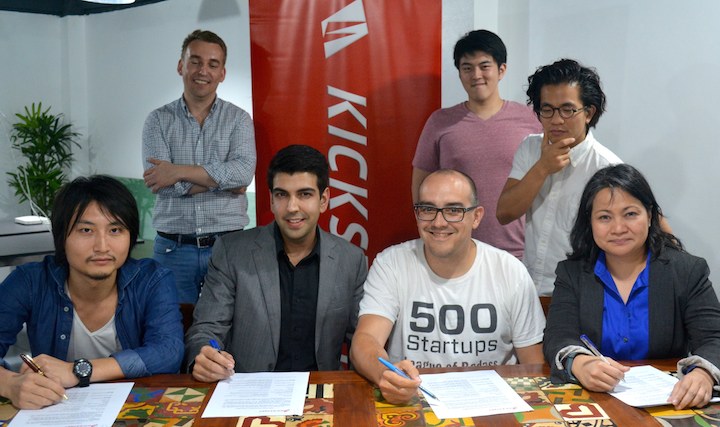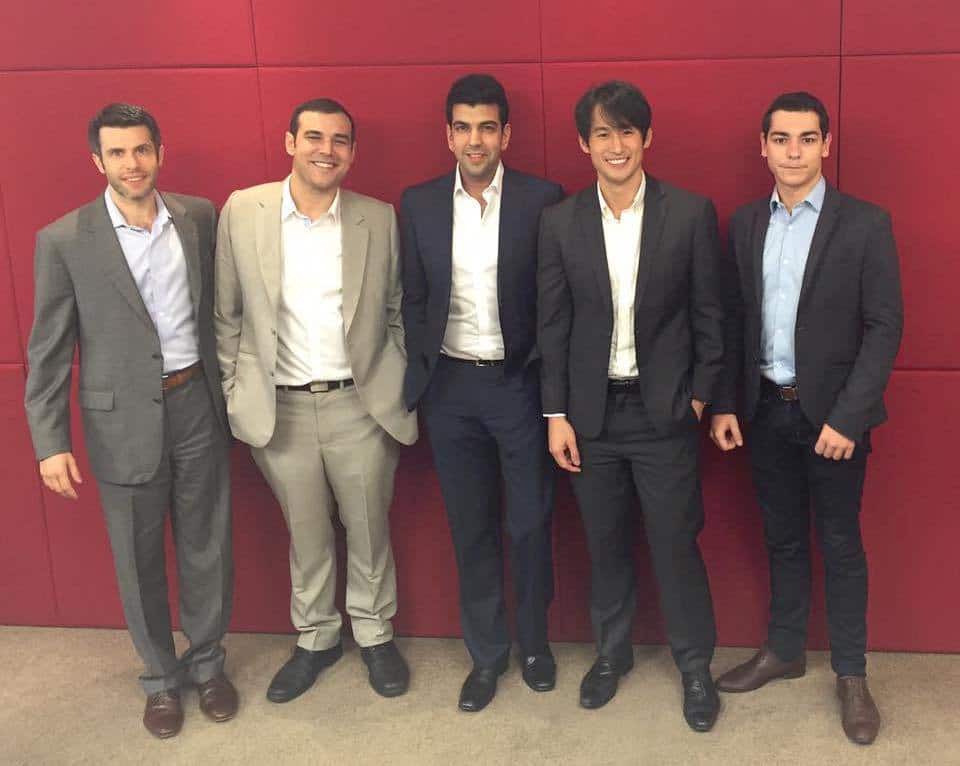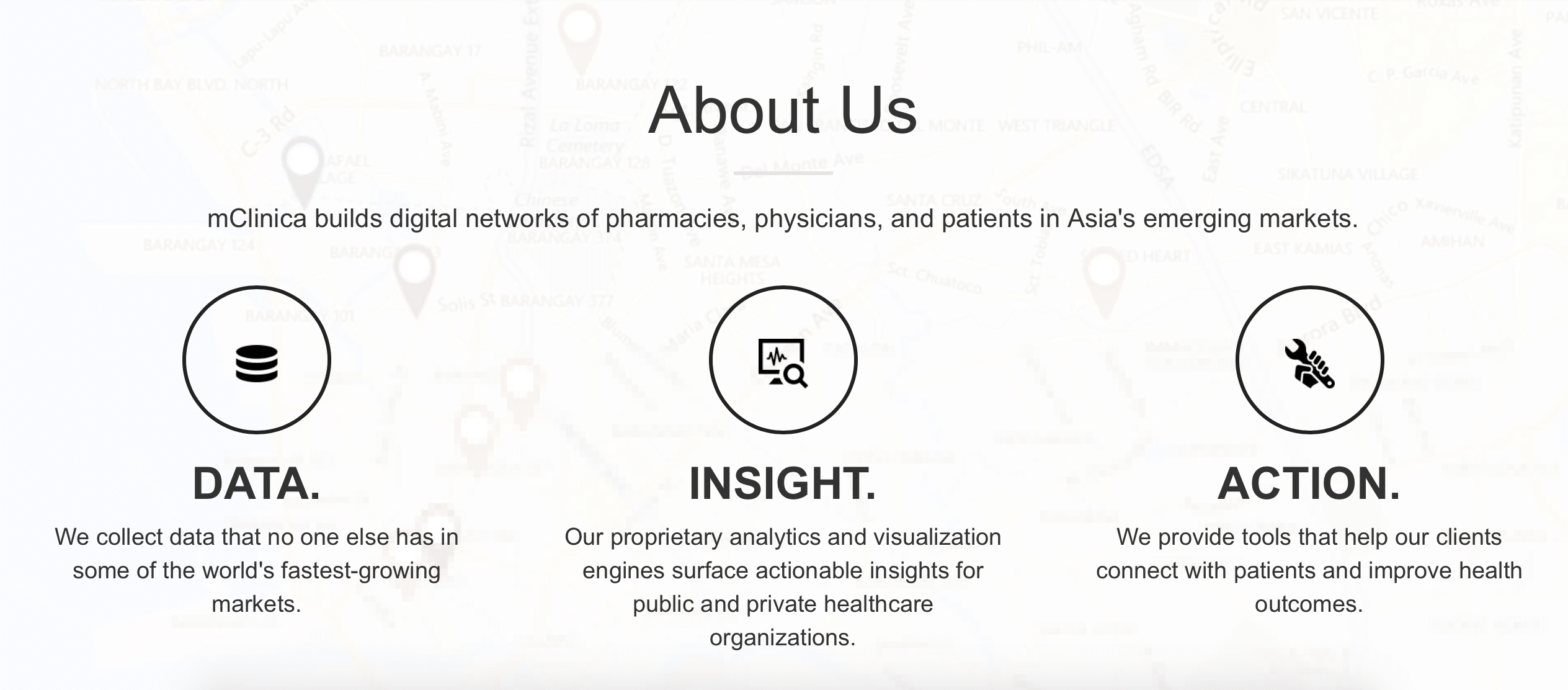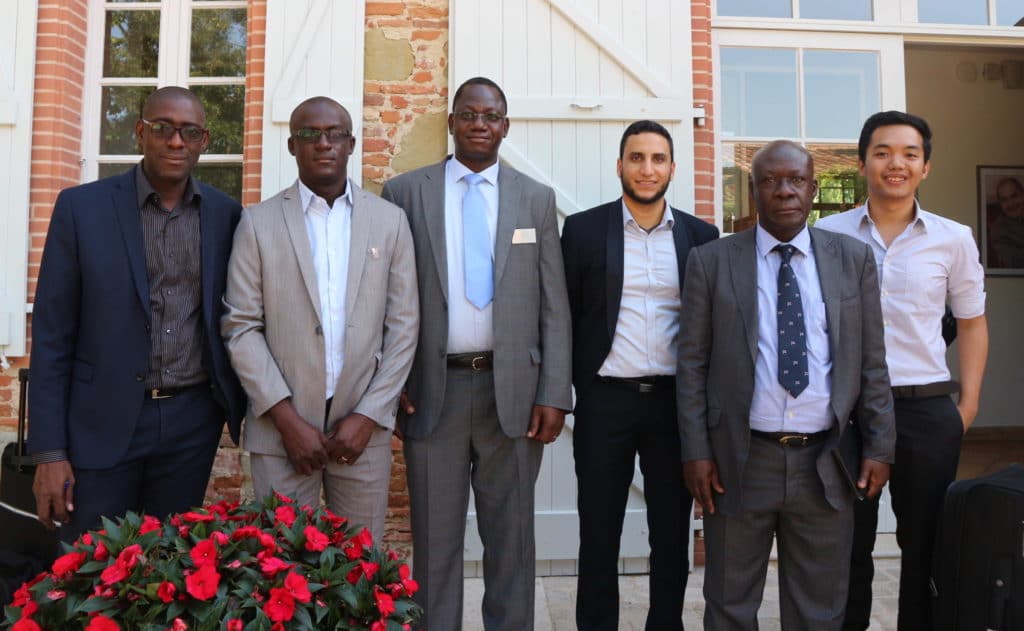Across emerging markets, more than one billion people currently lack access to safe and affordable medicines.
These markets are currently facing unprecedented changes related to healthcare and to the pharmaceutical industry. Along with the rise of a middle-class, the demand for medicines keeps increasing while this demand is shifting from infectious diseases to non-communicable diseases and chronic diseases like diabetes, cancers or cardiovascular diseases. Pharmaceutical companies are currently trying to adjust to these changes, to meet that demand in the best way, which is why they need insights and data about its main patterns. Based on these observations, Farouk Meralli created in 2013 mClinica – a mobile health technology startup – in the Philippines. There, the pharmaceutical industry is booming but still fragmented and poorly structured, as a lot of pharmacies are still small independent businesses, unable to monitor their patients’ consumption patterns and treatment observance. There are three consequences to the disorganization of the pharmaceutical market: the pharmaceutical companies are lacking insights and data to adjust to the emerging markets, pharmacist are constantly struggling to avoid going bankrupt, and patients have to face high drugs prices and a poor drugs’ availability. mClinica’s flagship program, Connect Pharmacy, aims to create a network of patients, pharmacies, drugs distributors. So far, mClinica has managed to gather 1,400 independent pharmacies, and over 20 million customers on its platform. Jake Josol, mClinica’s IT Director, answers StartupBRICS’s questions in an interview by Héloïse Lebrun-Brocail.
How would you describe mClinica? What are your goals and ambitions?
MClinica is a health technology startup that focuses primarily on the pharmacy industry. We aim at improving healthcare across patients through mobile technology by connecting health organizations, medicines companies, pharmacies, and patients.
Our goals are to increase patients’ accessibility to medicines and to improve the sustainability of pharmacies. Right now, in the Philippines, a lot of pharmacies are actually closing down, essentially because they could not sustain themselves. We enable them to become more sustainable.
We also provide data and insights to health organizations and pharmaceutical industry businesses to to help them stay aware of the evolutions of the market trends and to stay connected to markets` expectations and to enable them to improve public health, health awareness and health in general.
So basically, that’s mClinica : advancing healthcare through mobile technology.
What is the big idea behind the creation of mClinica?
Before launching mClinica, our founder Farouk Meralli worked in the pharmaceutical industry.
Thus, he had an extensive knowledge of the industry and he understood its main problem, which is the lack of data about the consumption patterns of medicines. Pharmaceutical companies know that their medicines are being sold to pharmacies through distributors, but these distributors don’t know exactly how many medicines the patients is able to buy, they can’t monitor patients’ adherence to their treatments, etc.
He wanted to create a patient program that both improved patients’ accessibility to medicines and provided companies with insights about the consumption patterns of medicines.
The investors he dealt with agreed to fund him provided that he settled his business either in India or in the Philippines, so he started out in India.
Eventually, the program literally boomed in the Philippines, as it perfectly fit its developing pharmaceutical industry.
Four years later, we’re settled across South-East Asia, so I think we managed to create one valuable opportunity and achievement.
Now that mClinica is settled through South-East Asia, do you aim entering new markets like Europe or the United States?
Our solutions and platforms have been designed for emerging markets, so our priority now is to settle in other emerging markets.
However, we’re also very interested in developed countries. The pharmaceutical industry and healthcare need some improvement throughout the world, and that goes beyond the idea of emerging markets. As a consequence, we are currently designing new solutions that would fit developed markets.
mClinica is handling a lot of sensitive data. How do you deal with the issues of privacy and data safety? Is that a brake to the development of mClinica?
These issues are essential to mClinica.
Our programs are perfectly safe: we do not collect any patient’s identifiable information. We only get their mobile number. Any information that we get from a patient can not be used to target him back.
One of our main objectives is to keep all the patients’ data we get anonymous, while improving their treatment.
When we do market research to point out insights, we only do aggregate data and processed data.
So far, international companies have been very satisfied with our way of handling patients’ data.
Last year, mClinica won the Pierre Fabre Prize for e-health innovation in emerging markets. Did winning that Prize came along with new opportunities for mClinica?
We have been very much honoured to receive the Prize. It has been quite a surprise for us. Thank you StartupBRICS for finding mClinica.
This victory came along with a lot of new opportunities for mClinica.
Before winning this Prize, we already worked with private companies from the pharmaceutical industry. But after the Prize, several health organizations contacted us to collaborate with us in order to help them improve public health and build a more sustainable model.
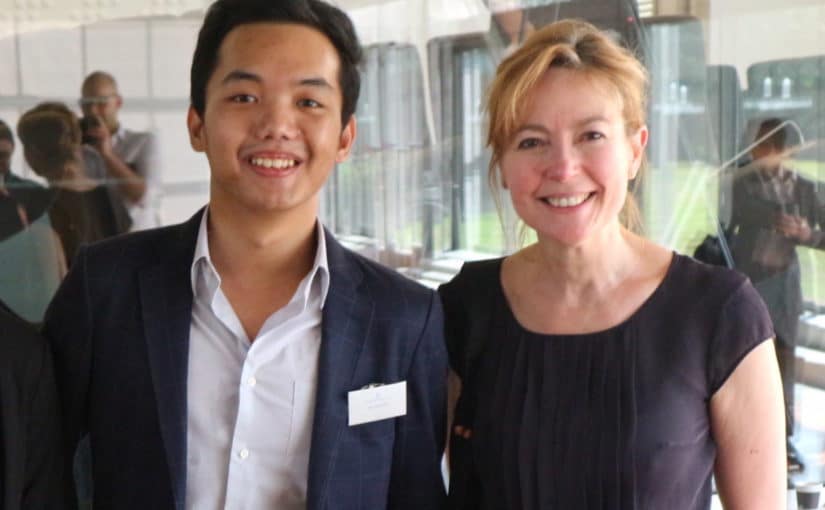
Jake Josol, mClinica’s Director of Software Services, with Mme Béatrice Garrette, Managing Director of the Pierre Fabre Foundation
How do you work with international organizations or with big companies, to improve healthcare, public health, etc.?
We work with any organizations whose activity is related to the pharmaceutical or health industry, and provided that our data supplement their data or their core program. We support them by improving their programs thanks to our data and our patients program.
mClinica is currently building a sustainable business model, and so it’s time for us to make an impact on society. The better we do as a business, the more excited it gets for us. That’s how we see anything.
Do you have a message to share with StartupBRICS community?
mClinica started as a startup, whose goal was to improve healthcare and public health.
I think that startupers willing to launch a business in the pharmaceutical industry should keep in mind that the main purpose of a startup is not just profit and money, it’s to improve the life of other people.
I truly hope that in a few years, when mClinica is a strong company, we’ll succeed in improving access and affordability of healthcare to everyone.
To get more infos about mClinica, follow them on Facebook and Twitter !
 StartupBRICS Le Blog "Tank" des startups et de l'innovation dans les pays émergents
StartupBRICS Le Blog "Tank" des startups et de l'innovation dans les pays émergents
